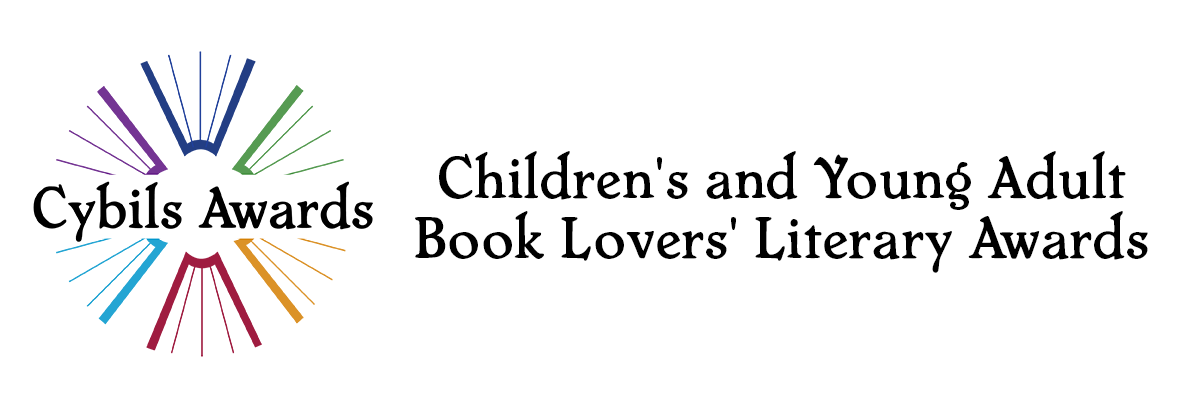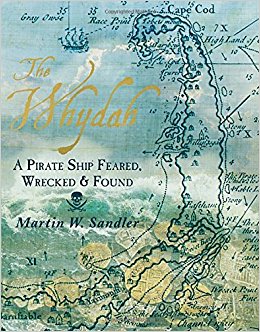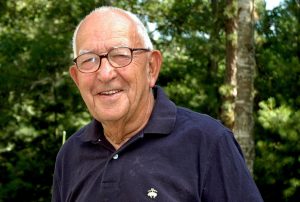Editor’s note: This interview was conducted via phone by our Junior High/Senior High Non-Fiction Chair, Jennie Rothschild. We’d like to thank her for her time in putting this together!
I was lucky enough to talk to Martin Sandler on the phone about his winning book, The Whydah. Below is a transcript of our conversation, edited for length and clarity.
In the Whydah, you debunk a lot of pirate mythology. What’s the hardest part about writing nonfiction about a topic where most of your readers have a very strong pop culture image in their mind that doesn’t bear a lot of relation to the reality of the situation?
Actually, it’s something I enjoy doing, you just have to be careful that you’re not doing it just to be a wise guy with a smirk on your face. I’ve always felt that nonfiction is so much more exciting than fiction if it’s done right.
I think I’ve done a lot of books that are just as good if not better than The Whydah but the attention it’s grabbed is amazing, because people just love pirates and I’m afraid they love a lot of the myths about pirates. I talked to a really good pirate historian at one point and we’re talking about walking the the plank and he says “Marty, you think they’re going to grab a piece of lumber out at sea while the ship is rocking and everything and they’re going to nail it on and they’re going to go through all that trouble for someone they want to gid rid of? No they’ll throw ‘em overboard!”
To me, breaking down myths, I have to do it in such a way that it’s part of the story, not me just being a wise guy but I always find it being an exciting part of the story if it’s legitimate. If you find something that’s a long held belief that really isn’t true–and there’s a lot of those–then I always go for it. There’s a place here, the Cape Cod Beer Works–the woman there who runs it is an incredible person and she opens up this huge facility for public speaking. On National Speak Like A Pirate Day I was asked to give a talk and I’m afraid I just walked in and said “No, they didn’t say ‘Avast ye mateys’, no they did not have parrots on their shoulders, no they did not have eye patches, but that doesn’t mean they weren’t some of the most interesting characters that ever lived.”
What is your research process like and what is your favorite part about doing research?
It’s all about the research for me it. It really and truly is all about the research. If after 88 or 89 books, if I can’t write them well then I should throw my pen away. I do much more research than I do writing. I am very disorganized in my personal life, but I am so organized [with my research]. I work with 5×8 cards and everything I read, or every interview I make, or the notes I make, or everything I take off the net that in any way I think is going to be of interest or that I’m going to use, I print it out and then I paste it on a 5×8 card. When I’m done I have this huge stack of 5×8 cards and then I organize the 5×8 cards into chapters and then within the chapters I organize them into a sequence and, if I do it right, it should write itself. It’s, to me, like a big detective story and that’s what I love about it. I’m doing a book called 1919: The Year That Changed America right now and one of the sections is that women get the vote and it’s an extraordinary story. There’s so much that I didn’t know and I learn so much about it.
But also, you gotta be lucky. I think one of my favorite books, and one of the most successful books I’ve written, is a book called The Resolute, about the search for the Northwest Passage. It’s about a ship that was abandoned by this drunken commander and then, on its own, sailed twelve hundred miles and then it winds up saving the crew of the people who found the Northwest Passage and eventually, it winds up being broken up and that’s the desk in the Oval Office today and that’s a hell of a story. I knew there was a story there, I just couldn’t find the elements. I was giving a keynote address at Mystic Seaport and when I was signing autographs at the end a guy came up to me and said, “Hi, I’m the curator of this place.” Just as a throw-away question I said “You wouldn’t have ever heard of a ship called The Resolute would you?” And he said to me, “I’ve been waiting 20 years for someone to ask me that question.” I said “Why?” “Because I’ve been keeping a scrapbook on that.” Thank God he didn’t want to write a book, you know? And he shared that….
You’ve written almost 90 books, so I’m guessing you don’t have a problem thinking of ideas for a new book but how do you narrow it down to pick your next topic?
I get many, many, many ideas for a book while I’m researching another book. One of the questions I get a lot when I’m doing other speeches is “How many researchers do you have working for you?” and I always answer “You’re looking at him”. And the reason for that, there’s a few reasons really: one, I get my ideas very often when I’m researching another book and somebody working for me, no matter how good they are, they’re never going to see that. Two, very often when I’m researching and I find something and I think “Oh my God I didn’t know that!” and it turns the direction that I’m taking that book in a whole different way and again, somebody else isn’t going to do that. Three, to be truthful, I’m a control freak.
For example, that book about The Resolute. I got that idea for that book when I was doing a book called Trapped in Ice, and as I was researching that book I kept seeing little hints about once there was this enormous British discovery ship and it got abandoned and it sailed on its own for 1200 miles and a whaling captain from New London found it and it turned out to be one of the most important ships and they made a desk and the whole bit and I said “Oh my God!” I kept looking and looking and looking and looking until finally, as I told you, at Mystic Seaport and other places I found enough to do a really great story on it.
In many ways that’s how I get my ideas and sometimes I just wrack my brain. I do two books at a time most of the time and I am a nut because if I’m not overworked and if I don’t have too many ideas, I get very, very unhappy. Right now The Whydah is out, the Apollo 8 book will come out in a couple of months, and I am very close to finishing 1919. I’ve been working on a book about shipwrecks and what we learn from them and once I get to about halfway through that ship book, I’m going to get very nervous if I don’t have another one going.
There are many unknowns in Bellamy’s story, which you point out really well in the text, but when finding holes or finding conflicting stories about something, how do you decide which version you think is the most likely?
It’s difficult. The hardest, hardest thing for me is that in doing my research, I go to five different really good sources, the five best sources, to look up something and I get five different versions. It’s something as simple as a date, or something less simple, such as who really was responsible, or the whole damn story and, just as you pose, who do you believe? Sometimes I take the weasley way out and I say ‘sources vary’ and I quote a couple. I’ve found that’s the most honest and maybe the most exciting way to do it. “Historians vary” or “historians are unsure some believe that” and I tell that and some believe… and I leave it to the readers to decide. It’s kinda weasley but maybe that’s the only way. Most of the time, I let it be known what I believe. But it’s the right question– that’s the hardest for me. The two hardest things in writing nonfiction, if you’re going to do it right: One is putting yourself back in the times and because times are very, very different. The other one is just what you said. When you have two great historians and they’re saying opposite things about the same thing and I want to yell out “What’s true?!” It’s hard. It’s very hard.
Thank you for your time!


